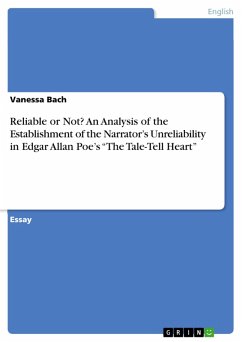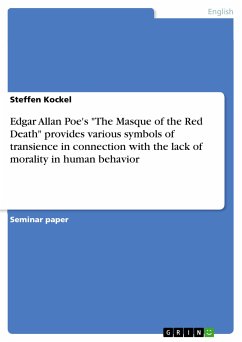Seminar paper from the year 2014 in the subject American Studies - Literature, grade: 1,0, University of Tubingen (Englisches Seminar), course: Proseminar I: Introduction to Literary Studies, language: English, abstract: Edgar Allan Poe published his short story "The Tell-Tale Heart" in 1843 when there was an ongoing discussion about the insanity defence in the United States. The notion of "moral insanity" or "partial insanity" was proposed, being a type of insanity that twists a person's moral faculties only, not their intellect. This new legal definition of insanity made it possible to exculpate those who had committed a crime in a rationally planned way but were unable to comprehend its moral depravity. In this paper, the terms "insanity" and "madness" are used with respect to the protagonist of "The Tell-Tale Heart" and are presupposed to refer to the idea of moral or partial insanity. The quintessence of the arguments put forward is that the reader's belief in the protagonist's insanity is created by unreliable and subjective narration. To begin with, the narrative situation of the story is analysed by applying different established categories of narratology and by identifying the narrator as unreliable. Then, the narrator's unreliability is interpreted with regard to his intention of wanting to appear sane, his subjectivity caused by that intention, and his unconsciously conveyed insanity.
Dieser Download kann aus rechtlichen Gründen nur mit Rechnungsadresse in A, B, BG, CY, CZ, D, DK, EW, E, FIN, F, GR, HR, H, IRL, I, LT, L, LR, M, NL, PL, P, R, S, SLO, SK ausgeliefert werden.









